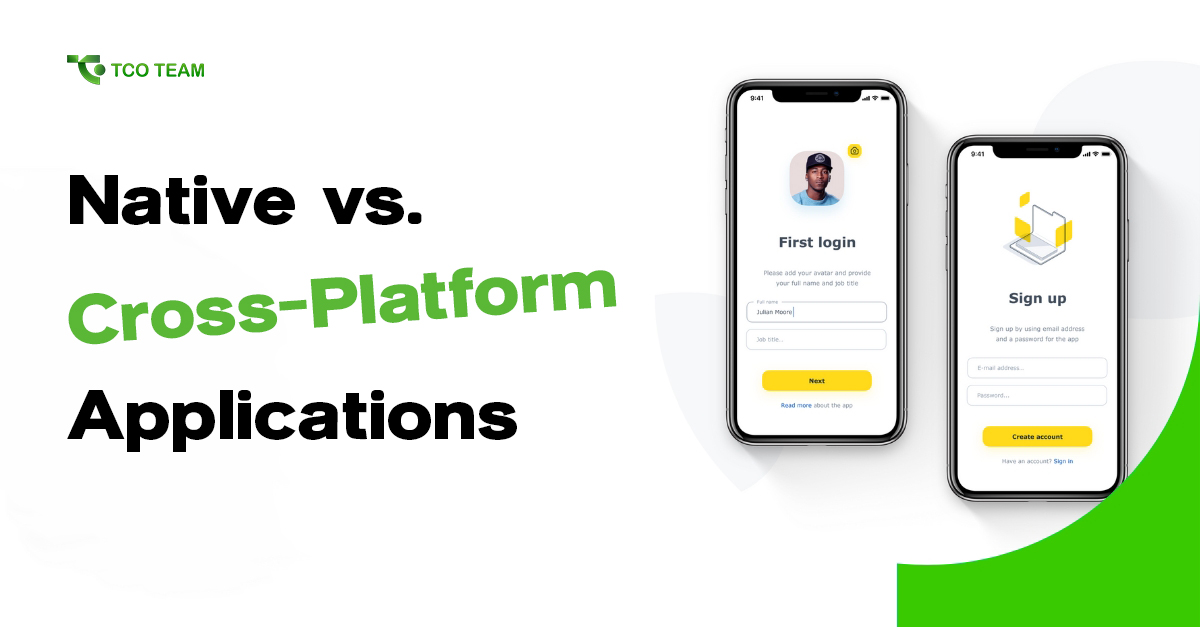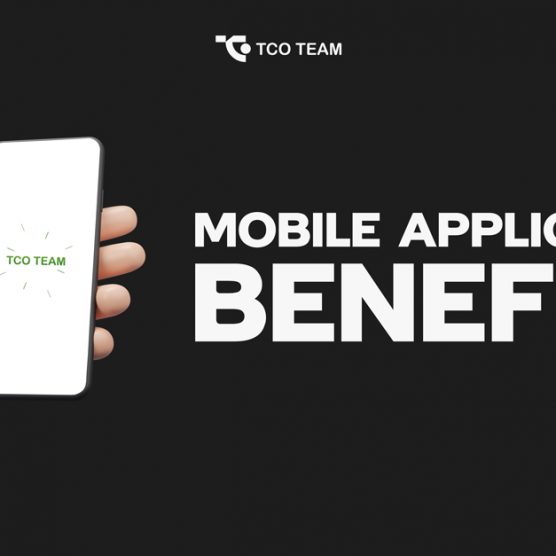Native vs. Cross-Platform Applications: What to Choose in 2023?

Today, app development is not a luxury but rather a need.
However, the debate between native and cross-platform mobile app development is ongoing. Read this blog if you’re likewise trying to decide which is better. Here, we’ve attempted to make the differences between the two more understandable.
What is a Native application?
Native development is the process of creating apps for a certain operating system, such as Android or iOS. There are guidelines, an integrated development environment, and a design language unique to each OS.
Native applications are available on the app store, Google Play, and the Apple App Store. The consumers can install these in their devices from there.
With native app development, programmers create apps specifically for one platform, whether it be a desktop, a smart TV, a smartphone, or any other cutting-edge device utilized in the digital world. They do this by using a programming language that is specific to the operating system.
Java or Kotlin are both used for creating native apps for Android, and Objective-C or Swift are employed when creating native apps for iOS. When you want to provide the best user experience for the application’s look and feel, native mobile app development is perfect.
Pros
- Integration of hardware sensors like as Bluetooth, GPS, NFC, etc. is made possible through native API access.
- Applications with greater performance and UX are made possible by native features.
- Businesses can operate in areas with poor internet availability thanks to the offline functionality.
- Higher visibility is facilitated with a separate app store for distribution.
- Because of the native design language, visual improvements are better.
Cons
- Higher development expenses as a result of various programming languages and environment variations.
- High maintenance costs because two apps must be maintained independently
- Increased time to market as a result of the longer time spent separately developing two apps
When Should a Native App Be Considered?
- A platform-specific coding requirement is needed.
- Device-specific features like GPS, a camera, and other features must be included.
- Companies that offer 3D animations and games.
- For first-time use, which will provide a satisfactory user experience
What is a Cross-Platform Application?
Let’s resolve the issue up front for people who believe hybrid app development and cross-platform app development are equal.
The terms cross-platform and hybrid app development mean very different things and serve quite different purposes.
Utilizing a single code base across many platforms is referred to as cross-platform development. Reduce development expenses and time by writing code only once and using it across different platforms.
Cross-platform applications will provide simple installation, reliable functioning, and low production costs. Regardless, with a cross-platform app development framework, don’t anticipate high performance and customization.
Pros
Rapid Development
Reduced Cost
Code Reusability
Great Product Maintenance
Cons
Complex Integrations
Development Lifecycle is Complicated
Lack of native UI improvements leads to a poor user experience.
Cascade effect: Service interruption on multiple platforms may result from a single problem.
When Should a Cross-Platform App Be Considered?
- You must target both iOS and Android app consumers.
- The app isn’t complicated and doesn’t require platform-specific functionality.
- With a tight budget, timeframe, and resource allocation, you need to deliver a mobile application across many platforms.
- You have to develop apps more quickly.
Which is best for cost saving?
Obviously, the complexity of a project’s features will affect the development time frame for any application.
More time spent developing equals more interaction with developers. Therefore, developing a complicated feature is more expensive than developing a simple one. It takes a lot of work to create two standalone native apps for iOS and Android.
On the other hand, because of reusing coding, cross-platform programs will be less expensive. The same codebase may be used to create apps for iOS and Android, saving time and money.
Which app type provides better performance?
Native mobile app development is the smart choice to make when it comes to providing the best performance to the users and comparing cross-platform vs native app performance. Native Android app development makes it easy to learn about cutting-edge smartphone capabilities like memory management, network and wireless access points, and more for streamlining service delivery and ultimately enhancing app performance.
Which type of app provides a better user experience?
Businesses must focus on delivering personalization, customisation, and enhanced usability. Native apps offer higher UI capabilities when compared to cross-platform apps because they come with pre-built libraries and interface elements and can be customized. Therefore, choosing to design native apps is the greatest option in terms of customisation and UX.
Every option has advantages and disadvantages when comparing native to cross-platform development; you simply need to consider the wider picture and be aware of the goals you want the app to accomplish. It will undoubtedly help you develop a cutting-edge yet captivating mobile app for the market and eventually achieve its peak over time.
Whether you choose native or cross-platform apps relies entirely on the particular requirements of your organization. Businesses must first determine their needs in order to produce a reliable yet cutting-edge app. Once this is done, they must research the best development platform for meeting all of their needs.

